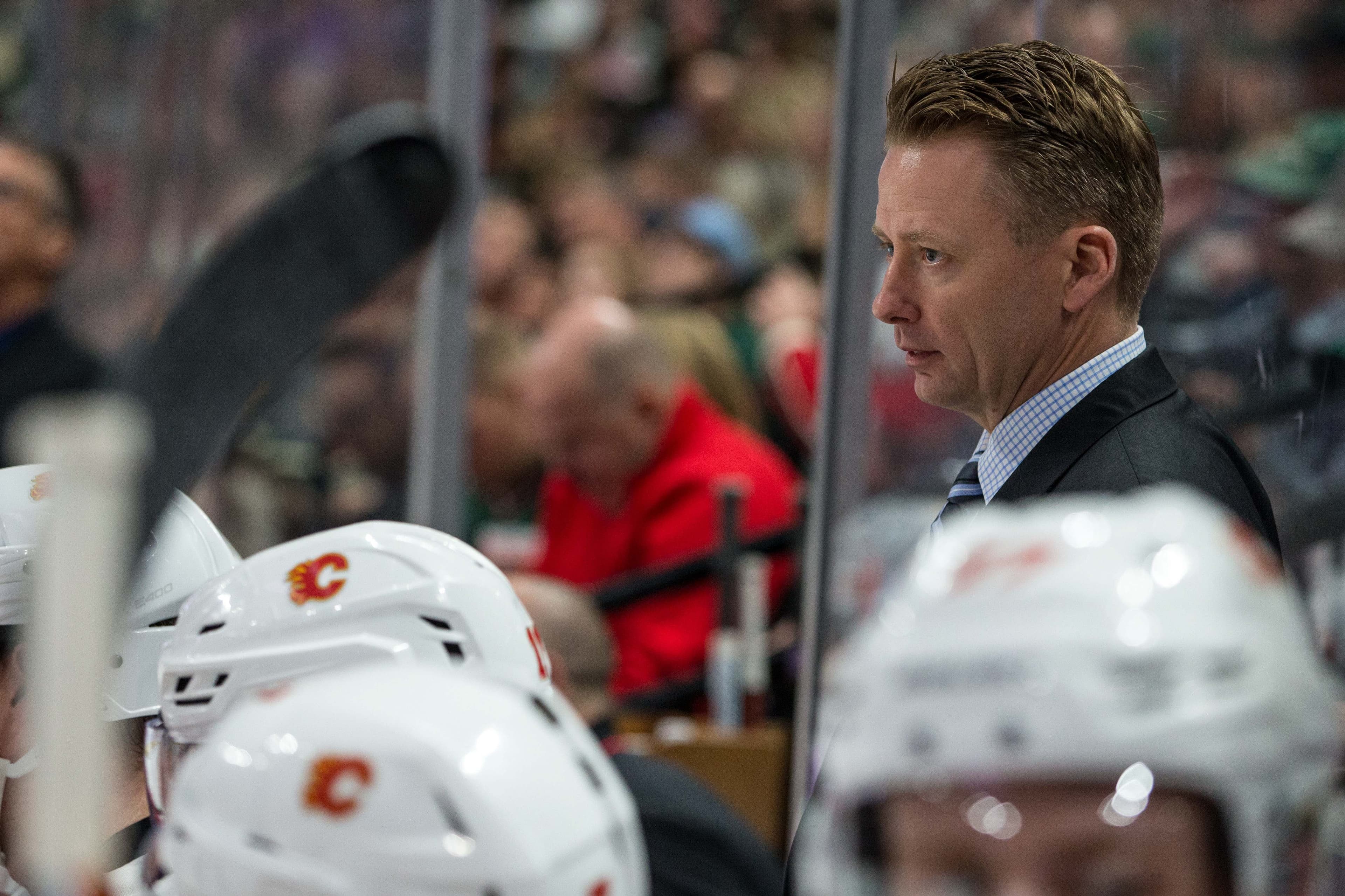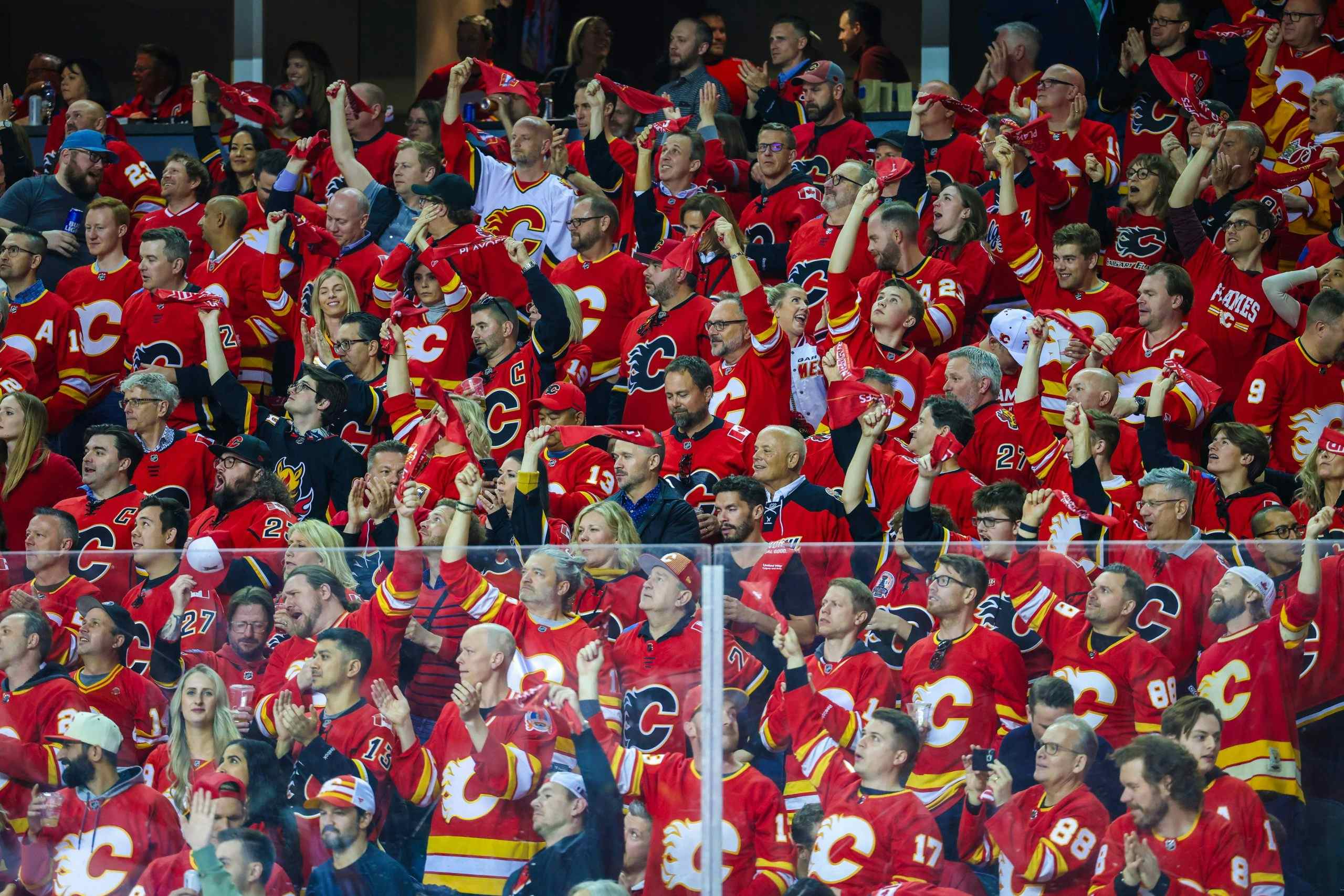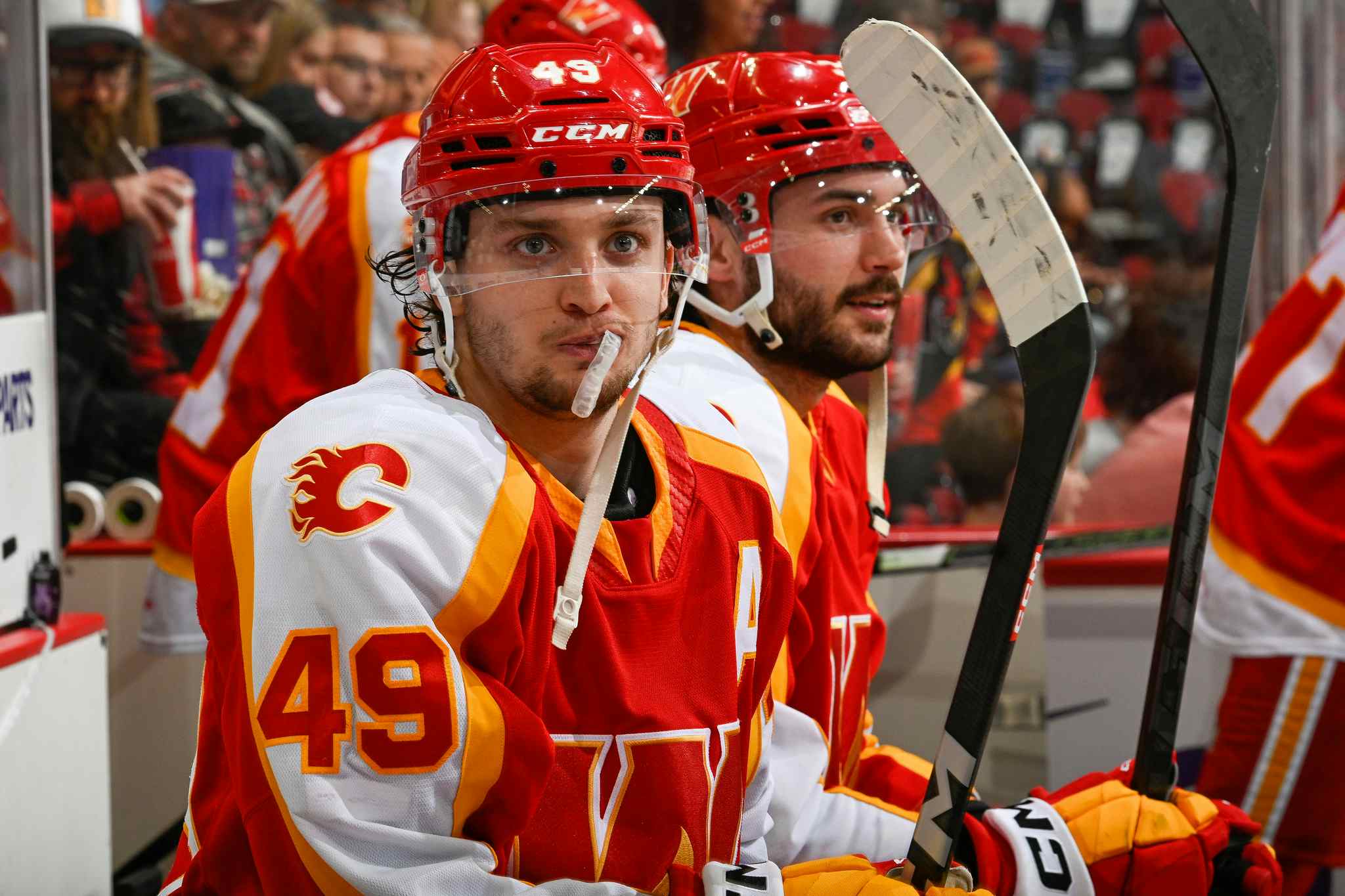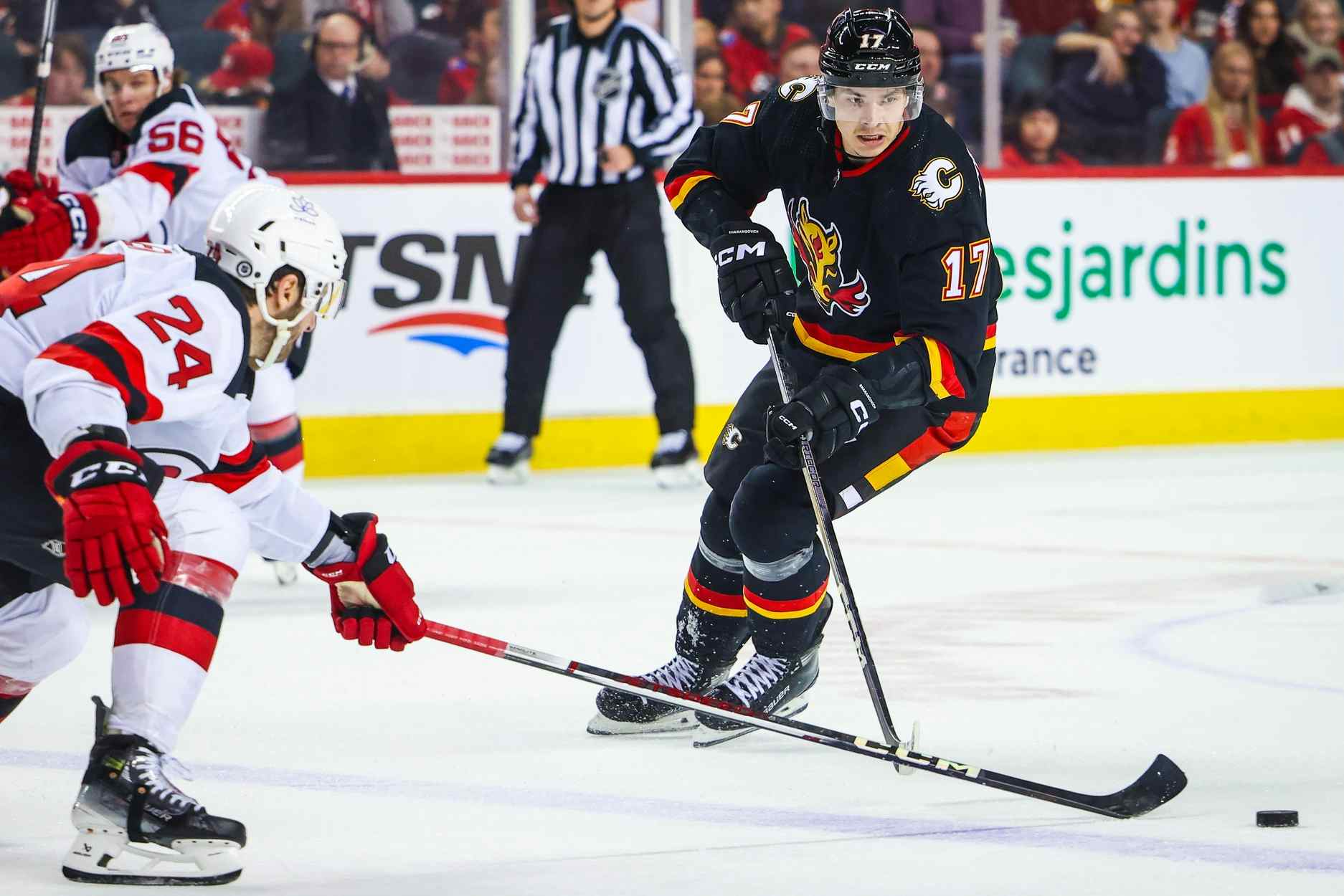The case for firing Glen Gulutzan, Part 1: Why he should never have been hired

By Skylardog
6 years agoAs we approach the trade deadline, the Flames find themselves in an all out battle as they try to secure a playoff spot. It has taken a good run to get into contention: the Flames have gone 11-3-4 in the last 18, earning 26 of a possible 36 points. The run featured a seven-game win streak, but also a six-game losing streak.
I have been an advocate of the Flames making a coaching change since early last season, roughly 120 games ago. With the team in the thick of a playoff race, a change at this point in the season is unlikely to happen now. That does not change the need for the an evaluation of the team’s performance under Glen Gulutzan once the season ends.
Over the next two days, I will lay out the case for the Flames to make an offseason coaching change. Then, next week, I will dig into some of the numbers that may explain why the Flames are struggling.
We will start by looking at how we arrived at having Gulutzan behind the bench, and why his hiring made little sense in the first place.
Thank you FlamesNation, and in particular Ari, for this opportunity, and your guidance. Let’s begin!
The anatomy of a coaching change
On May 3, 2016, the Flames fired Bob Hartley, citing that he had taken the team as far as he could. It was a late decision, coming three weeks after the season had ended.
The Flames appeared to have have parted ways with Hartley in a move to hire Bruce Boudreau. There was almost no indication the Flames were thinking of firing Hartley, and he was was fired four days after Boudreau was let go by Anaheim. Coaching decisions are usually made within days of a season ending; Boudreau was no exception, being let go two days after being eliminated from the playoffs. At the time of his firing, he was the fastest coach in NHL history to 400 regular season wins, doing it in just 663 games. In his 681 regular season games over nine seasons, he had a win percentage of 0.659, best all time for NHL coaches with more than 240 games behind the bench.
If the Flames did not covet Boudreau, then sadly, Brad Treliving is in the wrong business. Boudreau had won his division and made the playoffs in eight of the nine years he had coached in the NHL, and the Flames had struggled for more than two decades to consistently make the playoffs. It would have been a perfect fit.
Unfortunately for the Flames, Minnesota GM Chuck Fletcher created a coaching vacancy in February 2016 by firing Mike Yeo, and had neither committed to, nor released interim coach John Torchetti. Fletcher knew he could take his time to find a coach once he decided he was making a change, but he also knew he had to be ready immediately if the right guy became available.
When Boudreau was fired by Anaheim, the Flames were neither ready, nor had they even decided they wanted to make a coaching change. Fletcher was first in line, and Boudreau was hired by Minnesota on May 7, 2016, before the door had even closed as Hartley left.
As far as veteran coaches go, another option would have been Guy Boucher. He was hired by Ottawa on May 8, 2016, just five days after Hartley was let go. The Senators had created a vacancy two days after the regular season ended. If the Flames were looking at hiring Boucher, he too was gone before they had a chance to interview him.
After missing out on Boudreau and Boucher, the Flames may have had a third veteran coach, Randy Carlyle, in their sights. He was interviewed, and was in the conversation. According to Ryan Pike, on June 13, 2016, Treliving revealed that Carlyle, Gulutzan, and Capitals assistant Todd Reirden were the three finalists. Anaheim signed Carlyle the next day. Three days later, on June 17, the Flames hired Gulutzan. If the Flames wanted Boudreau, missed out on Boucher, and fell short in signing Carlyle, they may have been better off holding onto Hartley, but they had already pulled the trigger.
All appearances are that the Flames fired Hartley to get a proven veteran coach with a history of playoff appearances, namely Boudreau. So how in the world do you end up with Glen Gulutzan?
Gulutzan’s record as an NHL head coach
Let’s take a look at Dallas before, during, and after Gulutzan was head coach of the Stars.
Dallas Stars, season summary (data from NHL.com)
| Season | Coach | Games | Wins | Losses | OTL | Points | GF | GA | GF-GA | Standings | Playoffs? |
| 2010-11 | Marc Crawford | 82 | 42 | 29 | 11 | 95 | 227 | 233 | -6 | 9th | Missed |
| 2011-12 | Glen Gulutzan | 82 | 42 | 35 | 5 | 89 | 211 | 222 | -11 | 10th | Missed |
| 2012-13 | Glen Gulutzan | 48 | 22 | 22 | 4 | 48 | 130 | 142 | -12 | 11th | Missed |
| 2012-13 | (adjusted to 82 games) | 82 | 38 | 38 | 6 | 82 | 222 | 243 | -21 | 11th | Missed |
| 2013-14 | Lindy Ruff | 82 | 40 | 31 | 11 | 91 | 235 | 235 | +7 | 8th | Qualified |
Clearly, Dallas was a worse team under Gulutzan when compared to the team before and after his tenure. They earned 95 points the season before he arrived, and in almost any other season, would have made the playoffs. Under his leadership, the team deteriorated to 89, then to the equivalent of 82 in the lockout shortened 2012-13 season. After Gulutzan was fired, the Stars rebounded to 91 points, and qualified for the postseason.
But the underlying goal stats were not good either:
- Goals for fell during his tenure, and rebounded after he was fired.
- Goals against showed an initial improvement in his first season, but imploded in his second season, and improved dramatically after he left.
- Goal differential deteriorated during his tenure.
- Dallas went from -6 before his arrival to -12 in the shortened second season Gulutzan was coach, twice as bad in only 48 games. This equates to -21 prorated to a full season.
- The team was +7, a +28 improvement in goal differential (when equating 2013 into a full year), in the season after he was fired.
Why would the Flames, a team that struggled to make the playoffs year after year, hire someone who had never made the playoffs as a head coach at the NHL level? Why would a team hire a coach that had points, goals for, goals against, and goal differential tank during his time behind the bench, and improve dramatically after he left?
In Gulutzan’s defense, Dallas was a team in transition during his first year. Lost at the time of his arrival were Brad Richards, 77 points, and James Neal, 39 points. The major addition was Michael Ryder, who came in and put up 62. Remaining were Loui Eriksson and Mike Ribeiro, second and third in scoring with 73 and 71 points respectively, and an emerging young star, Jamie Benn, with 56 points, tied with linemate Brendan Morrow. In Gulutzan’s first year, Benn posted a team-high points per 60 of 2.95. His 63 points were second on the team, behind Eriksson at 71.
Gulutzan had a much improved roster to work with in year two. Ray Whitney, Derek Roy, and a younger Jaromir Jagr came in, replacing all and more of the offensive power lost in 2011-12. Benn’s production fell to 2.43 points per 60, however, he did lead the team in scoring. Eriksson and Whitney were tied for second.
A blockbuster trade occurred after Gulutzan left. In a seven-player deal, Dallas shipped out Eriksson and brought in Tyler Seguin. Benn had 79 points, 3.06 per 60, Seguin 83 and 3.26. You would think incoming coach Lindy Ruff had a much improved group to work with. That was not necessarily the case.
Dallas gave up their leading scorer during Gulutzan’s tenure, Eriksson, in the trade. Gone too were Roy, Jagr, and Ryder, three of the team’s top five in points per 60. While the 2013-14 Stars had an elite top two on the first line, the supporting cast was weaker. In 2012-13, six players were above 2.30 points per 60. In 2013-14 after Gulutzan left, only Benn and Seguin were better than 2.00.
Dallas Stars, 5v5 statistics
Perhaps the hiring was based on advanced statistics and 5v5 play. After all, the Flames hired Gulutzan to improve possession, in the belief that process would improve the team.
Dallas Stars, 5v5 stats (data from Natural Stat Trick)
| Season | Coach | Games | CF | CA | CF% | Rank | GF | GA | GF-GA |
| 2010-11 | Marc Crawford | 82 | 3248 | 3505 | 48.10 | 24th | 143 | 141 | +2 |
| 2011-12 | Glen Gulutzan | 82 | 3585 | 3611 | 49.82 | 14th | 144 | 150 | -6 |
| 2012-13 | Glen Gulutzan | 48 | 1990 | 2083 | 48.86 | 19th | 92 | 91 | +1 |
| 2012-13 | (adjusted to 82 games) | 82 | 3400 | 3558 | 48.86 | 19th | 157 | 155 | +2 |
| 2013-14 | Lindy Ruff | 82 | 3704 | 3632 | 50.49 | 14th | 158 | 149 | +9 |
In Gulutzan’s first season, Corsi improved, despite a weaker forward group. Much of the improvement was lost in his second season. Dallas never achieved a Corsi above 50% while Gulutzan was at the helm.
Increased Corsi for events only translated into one more goal for in his first year, going from 143 to 144. In year two, goals for jumped to the equivalent of 157, but it did this despite having the equivalent of 185 fewer Corsi for events compared to year one. The Stars’ shooting percentage of 9.47% was well above the NHL average. An unsustainable shooting percentage appears to have been ignored in Gulutzan’s hiring, but somehow was a critical fault of Hartley’s positive results in Calgary during the 2014-15 playoff season.
Corsi against was worse under Gulutzan when compared to before he arrived, and this translated into a defensive disaster. Goals against went from 141 before he arrived to 150 in season one and the equivalent of 155 in season two, 14 more goals against during his time as head coach. After he left, the team improved, goals against dropping to 149. Goal differential was better before he arrived and after he left.
Dallas Stars, special teams
To top it off, special teams were not so special in Dallas, much like has been the story in Calgary.
| Season | Coach | PP GF | PP GA | PP% | PP Rank | PK GA | PK GF | PK% | PK Rank | Net GF-GA |
| 2010-11 | Marc Crawford | 53 | 15 | 18.0 | 14th | 56 | 10 | 80.1 | 23 | -8 |
| 2011-12 | Glen Gulutzan | 31 | 3 | 13.5 | 30th | 52 | 5 | 82.8 | 13 | -19 |
| 2012-13 | Glen Gulutzan | 26 | 3 | 17.0 | 18th | 34 | 2 | 81.0 | 17 | -9 |
| 2012-13 | (adjusted to 82 games) | 44 | 5 | 17.0 | 18th | 58 | 3 | 81.0 | 17 | -16 |
| 2013-14 | Lindy Ruff | 46 | 5 | 15.9 | 23rd | 49 | 8 | 81.4 | 21 | 0 |
The Dallas powerplay for the two years Gulutzan was the coach ranked 29 out of 30 at 14.9%, and the penalty kill was 18th at 82.2%. The goal differential has to be the biggest concern. Special teams under Gulutzan were a detriment at -19 in the 2011-12 season and an adjusted -16 in 2012-13. Some of this speaks to penalties drawn and penalties taken – discipline – but is also a function of special team efficiency.
All this sounds far too familiar to Flames fans, being at or near the bottom of the league in PP efficiency, average or worse penalty killing, and a team that at times lacks discipline.
Conclusions on hiring Glen Gulutzan based on his head coaching record in Dallas
While I was concerned that a guy being hired as a possession coach had never achieved a Corsi of over 50% as a head coach in the NHL, and had his second year Corsi drop, rather than improve, the fact that the season after he left, the Stars posted a 50.49 CF% led me to the conclusion he was not a very good coach. I stand by this based on the team’s point drop, win/loss record, goal differential, the fact he had never made the playoffs as a head coach, the deterioration of his team after he arrived, and the improvement after he left. My biggest concern was that rather than a progression, Gulutzan’s second season was worse than his first with Dallas, despite an improved roster.
I decided I would give Gulutzan the benefit of the doubt and a chance to prove he was a capable NHL coach as 2016-17 began. After game 16 that season, a 4-2 loss to the Rangers, sitting in 29th, with the league’s worst win percentage of 0.344, I had seen enough.
Recent articles from Skylardog





